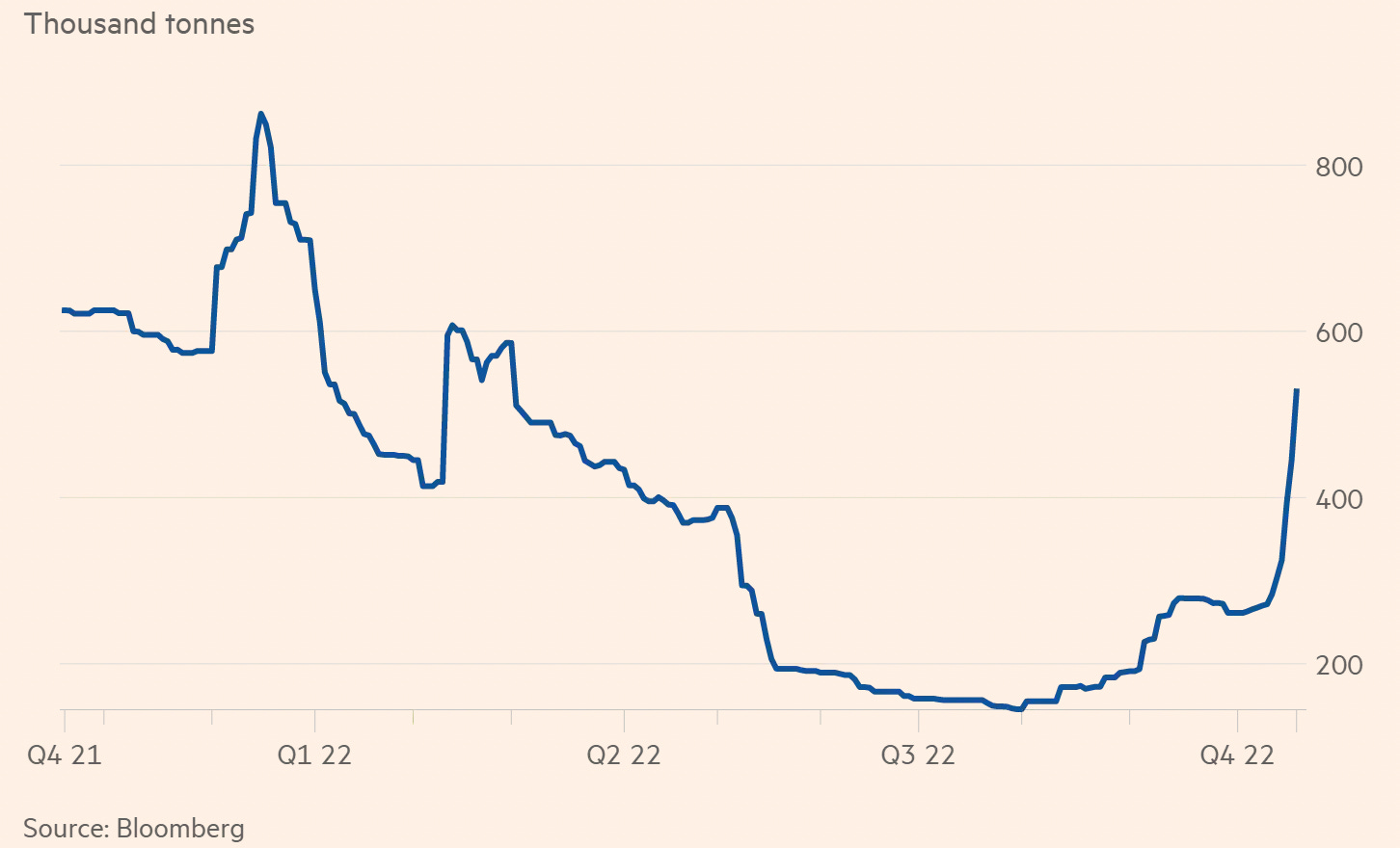LME's Dilemma
Messy Metal Markets
Towards the end of October 2022, the LME was facing a tough decision on whether the exchange will accept Russian metal or not. This is off the back of complications to do with the suspension of trading of nickel, which led to legal backlash against the LME, which is described in further detail in ‘Nickel - An Uneasy Path’. On 11 November however, the LME came out with their decision: rejecting any calls to ban Russian metal.
The arguments in favour of the ban were along the lines of supporting the price of metals and preventing distortion. The issue was that if Russian metals are still exchanged there would be distortions, given the political climate.
While Russian commodities such as oil and coal have been heavily sanctioned, metals have not been as of yet, and so justification for a ban by the LME would be weak.
Russian metal however plays a crucial role in global supply and exchange. Currently, Russia produces 6% of world aluminium, 5% of world copper and 7% of world nickel. Despite this, many traders and consumers have chosen to 'self-sanction' against these Russian metals, citing ethical motives in several cases.
There are further complications this will surface. The self-banning of consumption of Russian metals, while they are still traded on the exchange will create a stockpile within warehouses of the LME. The concern is that the price of these metals will start to incorporate the unwanted Russian products held by the exchange, and may not rationally account for the actual price of metals traded. This mismatch will undermine confidence in the LME to deliver financially 'fair' prices.
What this means for exchanges which do not involve Russian metal is that it has added a premium over the prevailing price. These premiums are a 'non-Russian' premium in some ways, as people would rather spend more on non-Russian metals. An example of this is Codelco, a Chilean mining company, which has set a premium of copper of $235 per tonne above the LME benchmark.
There have already been concerns about rising stockpiles, as seen with the surge in delivery of aluminium to LME warehouses:
Whether calls for the ban strengthen in number will depend on action on Governments, as if there is a sovereign ban on metals, it is more viable for the LME to implement a ban. However, metals are difficult to replace, and given Russia's stronghold in its supply, the LME may be hesitant to call for an outright ban. This would have far-reaching implications on top of an energy crisis. In particular, it may affect the abilities of firms to receive financing from banks if these companies are facing a shortage of metal inputs. Therefore, there are wider impacts within the financial system which make it a tedious decision.
The idea of the self-sanction is somewhat of an unofficial ban, and similar effects can be achieved, however the risks to the stockpiles are of paramount importance to the LME. At a time when it is facing scrutiny from its controversial suspension of nickel trading, it would be in the best interests of the LME to refrain from any further controversial or disruptive measures, and maintain integrity as an exchange providing accurate pricing.


